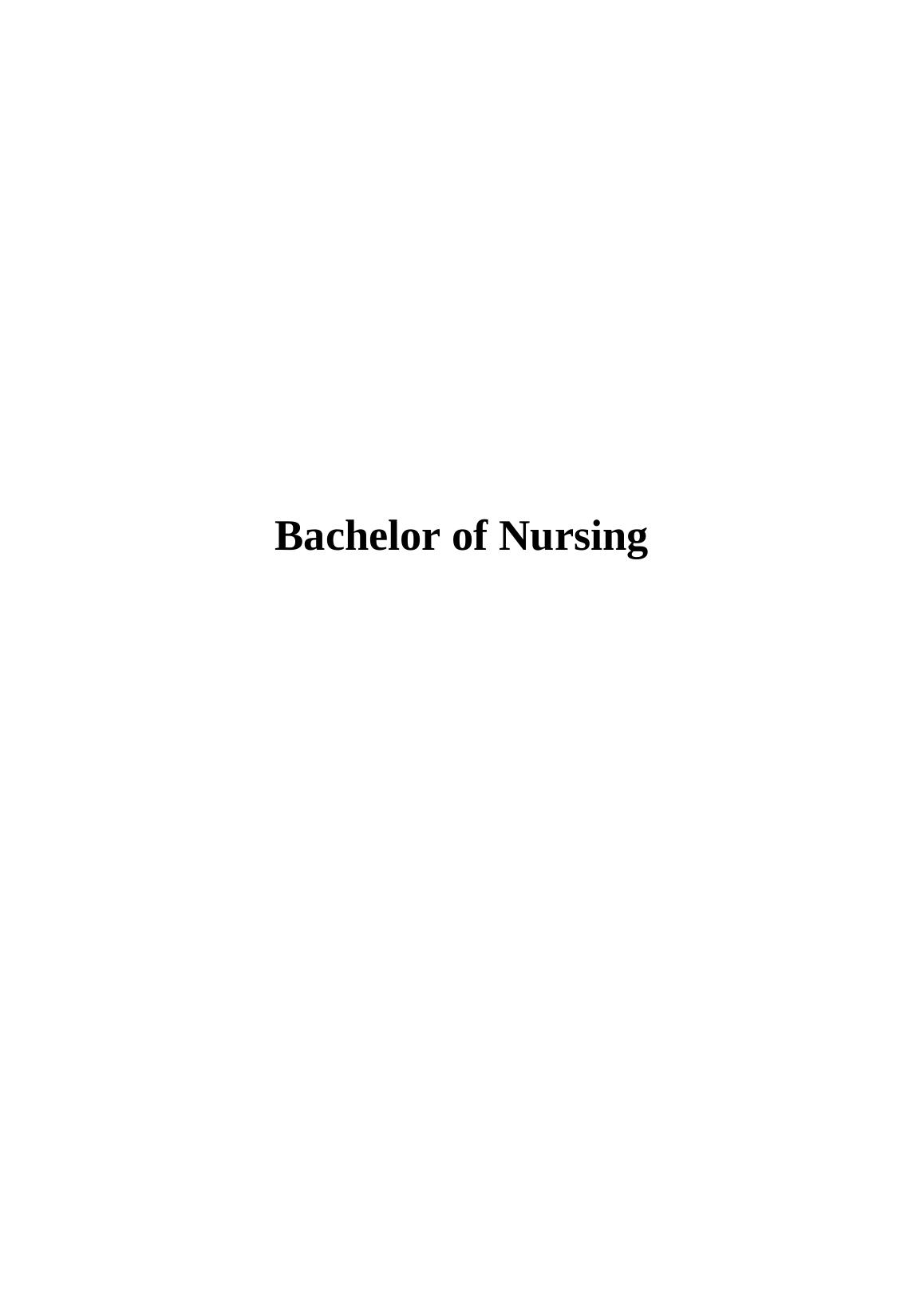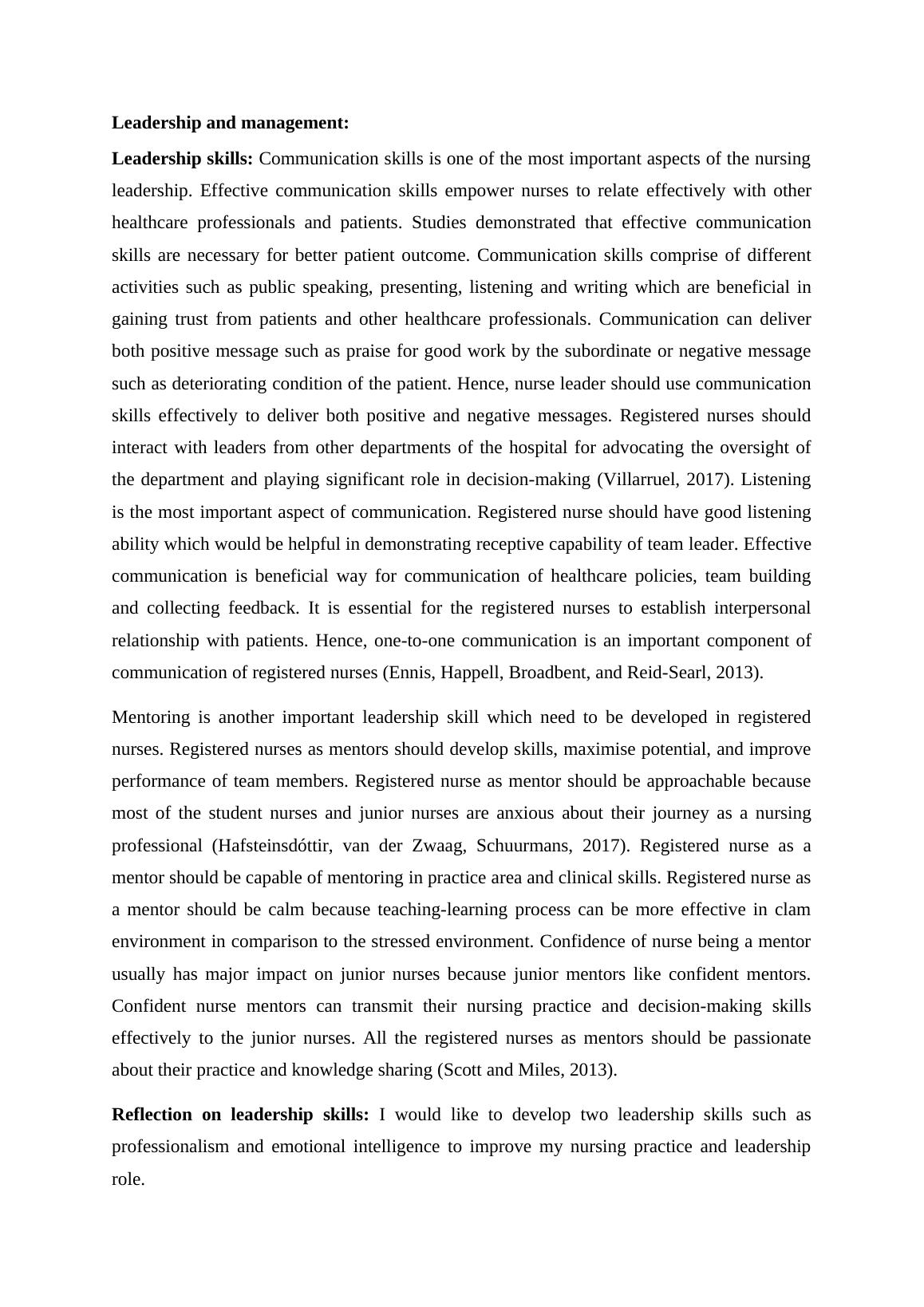Leadership and Management in Nursing: Communication Skills, Mentoring, and Challenges with Electronic Health Records
Reflect upon own experiences and address contemporary practice issues relating to learning activities for ILO 4, 5 & 6
8 Pages3067 Words175 Views
Added on 2022-10-01
About This Document
This article discusses the importance of communication skills and mentoring in nursing leadership, challenges with electronic health records, and self-care strategies for nurses. It also explores the use of digital health and huggable robots in healthcare.
Leadership and Management in Nursing: Communication Skills, Mentoring, and Challenges with Electronic Health Records
Reflect upon own experiences and address contemporary practice issues relating to learning activities for ILO 4, 5 & 6
Added on 2022-10-01
ShareRelated Documents
End of preview
Want to access all the pages? Upload your documents or become a member.
Future Prospects Of a Nurse Practitioner
|4
|878
|22
Leadership and Management in Nursing Assignment (Doc)
|11
|3666
|119
Introduction to Nursing Leadership
|12
|2832
|19
N4455 Nursing Leadership and Management Assignment 2022
|6
|1478
|19
Communication and Mentoring in Healthcare Organizations
|5
|761
|131
Reflective Report Assignment 2022
|6
|1344
|15



